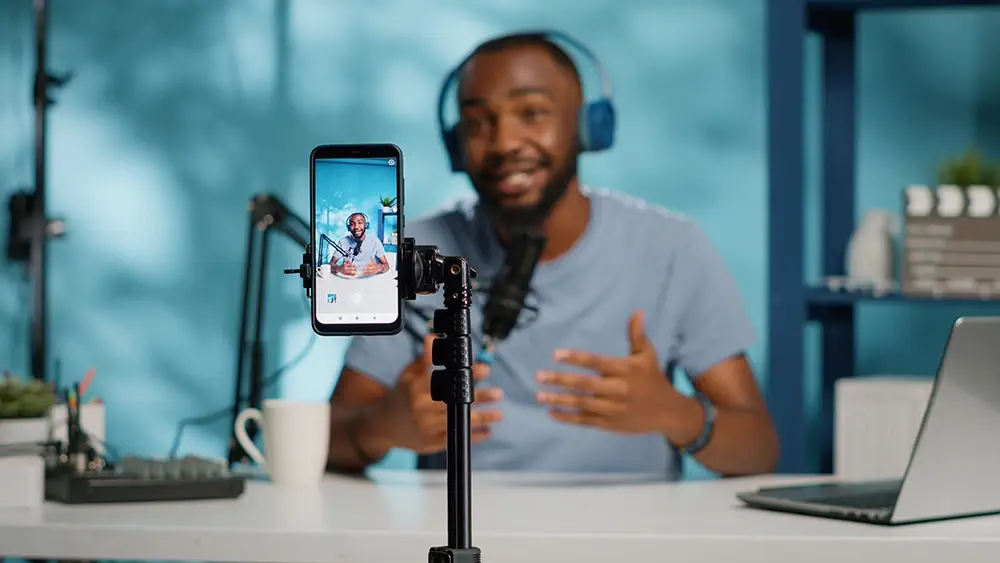The success of an event pivots significantly on the content crafted to both promote and enrich the attendee experience. Whether organising a corporate seminar, a music festival, or a trade fair, the essence of your content extends beyond mere promotion; it enhances attendee engagement and leaves a lasting, memorable impact.
This guide delves into the quintessential practices for generating content that not only captivates but thoroughly engages your audience, ensuring your event is a resounding success.
Understanding Your Audience
The first step in crafting impactful content is pinpointing exactly who your event is catered to. Tailoring your content to align with the interests, needs, and preferences of your audience is crucial. Leveraging data from previous events, social media analytics, and thorough market research can help you paint a detailed picture of your audience profile.
Engagement shouldn’t start on the day of the event. Initiating communication through surveys, social media polls, and interactive posts beforehand refines your content and also boosts attendee engagement by valuing their input and expectations.
Strategic Content Creation
Developing a Thematic Approach
Your content should revolve around a central theme that mirrors the purpose of your event and resonates with your audience’s expectations. A consistent thematic approach across all your communications ensures a unified message that reinforces the event’s objectives.
Diversifying Content Formats
To keep your audience intrigued, diversify the formats of your content. Blogs, videos, infographics, podcasts, and social media posts cater to different preferences and engage attendees at various stages of their journey to and through your event.
Creating a Content Calendar
A detailed content calendar is vital for organising when and through what channels content will be released. This is crucial for building anticipation and delivering necessary information as the event approaches.
Leveraging Automation Tools
Employ content scheduling tools like Hootsuite or Metricool to maintain a steady flow of content across multiple platforms, ensuring your posts are timely and engagement is consistently tracked.

Engaging Content for Promotions
Generate buzz with teaser videos, countdowns, and sneak peeks into what the event will entail. Stimulating curiosity can drive early registrations and promote word-of-mouth marketing.
Showcasing previous attendees’ testimonials and encouraging user-generated content like photos and videos from past events can also authenticate your event’s appeal and capitalise on social proof to boost registrations.
Leveraging Content During the Event
Real-Time Engagement
Keep both attendees and non-attendees engaged with live updates, streaming content, and real-time social media interactions. For attendees, provide interactive apps like those offered by Eventscase or digital experiences to enhance their participation.
Interactive Content
Develop sessions that require audience interaction, such as Q&A segments, live polls, and breakout rooms. This transforms attendees from passive participants to active contributors, enriching their overall experience.

Utilising Social Media for Event Content Promotion
Social media platforms are powerful tools for promoting event content, generating interest, and engaging with potential attendees. Here are some best practices for utilising social media for event content promotion:
Choose the right platforms
Identify the social media platforms that are most popular among your target audience and have the highest engagement rates for events. This may include platforms such as LinkedIn, Twitter, Facebook, or Instagram. Focus your efforts on these platforms to maximise reach and engagement.
Create a consistent brand presence
Establish a consistent brand presence across your social media profiles. Use consistent branding, messaging, and visual elements to create a cohesive and recognizable identity. This will help build trust and credibility with your audience.
Share event updates, teasers, behind-the-scenes footage, speaker interviews, or valuable industry insights on your social media platforms. Make sure the content is visually appealing, concise, and provides value to your audience. Encourage comments, shares, and discussions to increase engagement.
Create a unique event hashtag and encourage attendees, speakers, and sponsors to use it in their social media posts. This will help generate buzz, increase visibility, and create a sense of community around your event. Monitor the hashtag and engage with attendees by liking, commenting, or sharing their posts.
Leverage influencers and thought leaders
Identify influencers and thought leaders in your industry who have a strong social media presence and a relevant audience. Collaborate with them to promote your event content and reach a wider audience. This can include guest blog posts, social media takeovers, or influencer endorsements.
Engage with your audience
Actively engage with your social media audience by responding to comments, answering questions, and acknowledging their contributions. This will help build relationships, foster a sense of community, and encourage further engagement with your event content.
Measure and analyse performance
Use social media analytics tools to measure the performance of your event content on different platforms. Track metrics such as reach, engagement, click-through rates, and conversions. This will help you identify what is working well and make data-driven decisions for future content promotion.
Post-Event Content Strategy
Following the event, share highlights, interviews, and attendee feedback to not only showcase the event’s success but also to engage with your audience post-event and lay the groundwork for future events.
Keep the dialogue going even after the event concludes. Share additional resources, follow-up content, or announcements of upcoming events to maintain interest and nurture a community around your brand.

Measuring Content Effectiveness
Utilise analytics tools to track engagement levels and overall reach. Examples of these tools include Google Analytics, event management software such as Eventscase, heatmap tools, and CRM systems. Feedback via surveys and social media interactions can also provide valuable insights into what resonated with the audience and what needs improvement.
Wrapping Up
Crafting engaging event content is an art form that requires careful planning, creativity, and adaptability. By utilising social media effectively, measuring the success of your content, and following best practices for virtual events, you can take control of this process and ensure that your event content resonates with your audience.
Remember to continuously analyse and refine your content strategies based on audience feedback and performance metrics. The more you understand your audience and their preferences, the better equipped you will be to create content that captivates and engages. With time and practice, you will become a master at crafting engaging event content that simply wins.
If you would like to subscribe to our newsletter to get live updates on everything related to our platform – news, blogs, events, announcements and much more, please, register here.





